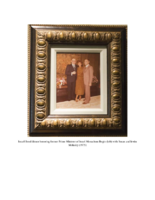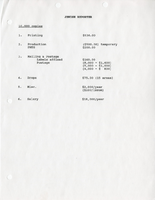Search the Special Collections and Archives Portal
Search Results
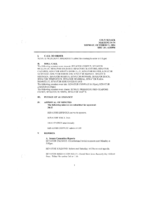
Meeting minutes for Consolidated Student Senate, University of Nevada, Las Vegas, October 11, 2004
Date
Archival Collection
Description
Text

Interview with Oscar Foger, May 5, 2005
Date
Archival Collection
Description
Text

Transcript of interview with LaVerne Ligon, BJ Thomas, and Leonard Polk conducted by Claytee D. White, July 9, and July 18, 2012
Date
Archival Collection
Description
LaVerne Ligon was born in 1942 in Washington D.C. Around the age of nine, she started dancing at the Jones-Haywood School of Ballet, which started her career in dance. She took her first job as a professional dancer when she was eighteen with the Capitol Ballet Company. She moved to Las Vegas, Nevada in 1973. In 1974, she successfully auditioned for a touring cast of Hello, Dolly! After completing that show, Ligon performed in a number of productions in Las Vegas, including Hallelujah Hollywood and Jubilee. She retired from dancing in the early 1980s after sustaining an injury and she opened the Simba Talent Agency, a dance school for at-risk youth. She also worked for Family Services, but is now retired. She continues to work on projects with the Simba Talent Agency. BJ Thomas was born in 1935 in Plain Dealing, Louisiana. He moved to Las Vegas in 1968 after working for the Post Office in San Francisco. He worked a number of jobs for two years before beginning to pursue work as a stage hand. Thomas worked for shows at the Tropicana and Caesars Palace. He is currently retired. Leonard Polk Jr. was born in 1948 in Monroe, Louisiana. He and his mother moved to Las Vegas in 1949 when he was just two months old. His father worked on the Hoover Dam. Polk grew up in West Las Vegas and remembers the movement to integrate the schools in the city. As a young adult, he joined the Marines and served a tour of duty in Vietnam. Polk began to work for shows in Las Vegas after he finished his military career. He worked for the Aladdin Baghdad Theater and for the MGM Grand Hotel. He is currently retired, but remains active with the First African Methodist Episcopal Church.
Text
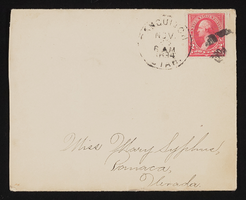
Letter and envelope from John M. Bunker, Logan, Utah to Mary Etta Syphus, Provo, Utah
Date
Archival Collection
Description
From the Syphus-Bunker Papers (MS-00169). The folder contains an original handwritten letter, an envelope, a typed transcription of the same letter, and a copy of original letter attached.
Text
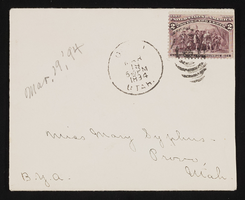
Letter and envelope from Aggie Herrick, Ogden, Utah to Mary Etta Syphus, Provo, Utah
Date
Archival Collection
Description
From the Syphus-Bunker Papers (MS-00169). The folder contains an original handwritten letter, an envelope, a typed transcription of the same letter, and a copy of original letter attached.
Text

Jose Leonardo Martinez oral history interview: transcript
Date
Archival Collection
Description
Oral history interview with Jose Leonardo Martinez conducted by Barbara Tabach and Nathalie Martinez on August 19 and 29, 2020 for the Latinx Voices of Southern Nevada Oral History Project. Session 1: Jose discusses his childhood and what it was like growing up during the Salvadoran Civil War. He recounts the dangers he's faced and how he made his way to the United States after traveling through Guatemala and Mexico. Subjects discussed include: Salvadoran Civil War; Ciudad Arce, El Salvador; Guatemala; Mexico; Los Angeles, California. Session 2: Jose continues his discussion of growing up in El Salvador and the violence he witnessed in the country's army during the 1980s. He also talks about his personal life after moving to the United States and his experiences navigating gang culture in Los Angeles, California. Jose recounts his previous jobs, his schooling, how he met his wife, and his family's move to Las Vegas. Subjects discussed include: El Salvador army; gang violence.
Text
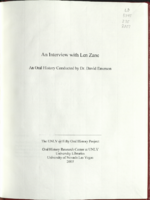
Transcript of interview with Len Zane by Dr. David Emerson, May 10, 2007
Date
Archival Collection
Description
Text

